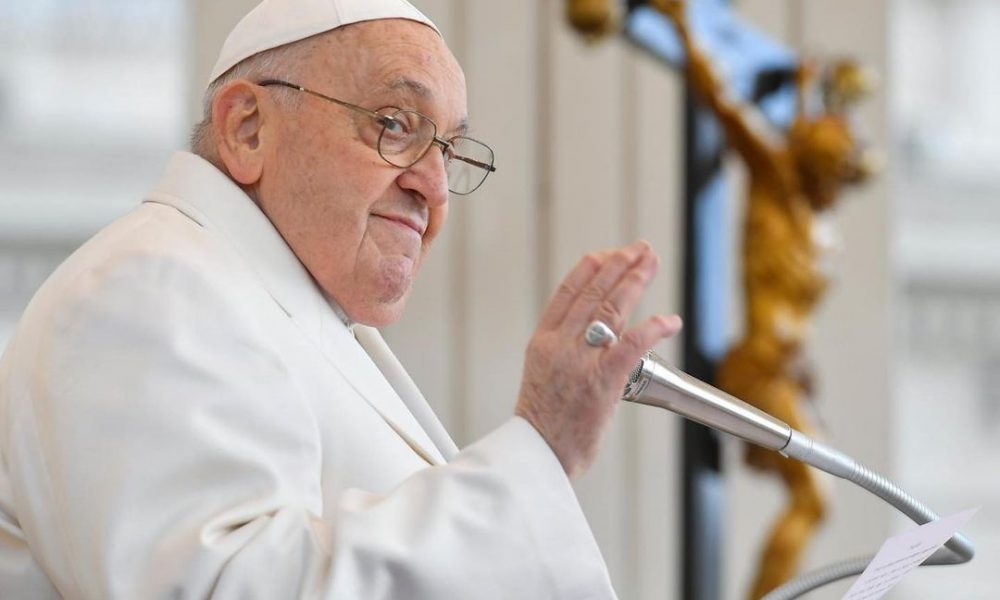
Pope Francis Stirs Controversy With Comments on the Russia-Ukraine War

In the ongoing Ukraine-Russia conflict, a recent intervention by Pope Francis has ignited a spectrum of reactions across the globe. Speaking to Swiss broadcaster RSI, the Pope invoked the imagery of a “white flag” in the context of Ukraine’s dire situation, advocating for negotiation as a path to peace. This seemingly simple suggestion has since spiraled into a whirlwind of controversy, misinterpretation, and debate.
The use of the term “white flag,” commonly associated with surrender, was the spark that ignited the firestorm of controversy following Pope Francis’s interview. Critics and supporters alike jumped to interpret his words, with many assuming the Pope was suggesting Ukraine concede defeat to Russia.
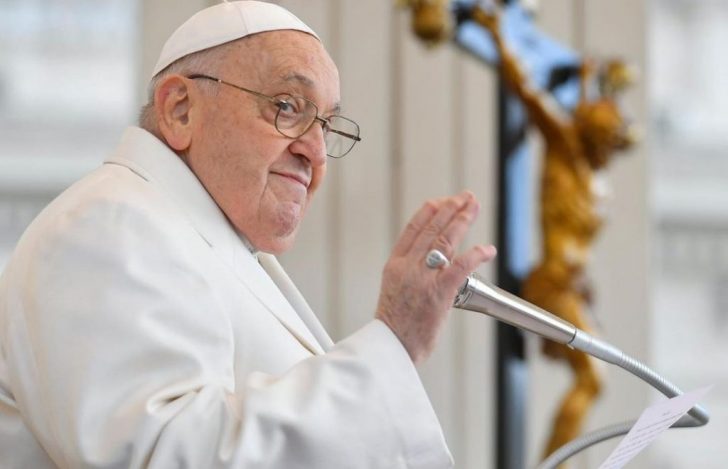
Francis / IG / In the interview, Pope Francis, 87, asserts that the strongest is the one who “understands the situation and accepts it as it,” hinting at a possible defeat of Ukraine.
This interpretation spread like wildfire, provoking a wide array of responses from outrage and disappointment to support for the Pope’s peace-loving stance.
The Vatican’s Swift Clarification
In the wake of the uproar, the Vatican was quick to issue a clarification, emphasizing that Pope Francis’s words were in response to the interviewer’s language and that negotiation should not be equated with surrender.
Pope Francis’s position throughout the Ukraine-Russia conflict has been one of a delicate balancing act. Striving to maintain the Vatican’s historical stance of neutrality, he has, however, not shied away from making statements that some have interpreted as veering towards an understanding, if not outright support, of the reasons behind Russia’s aggression.
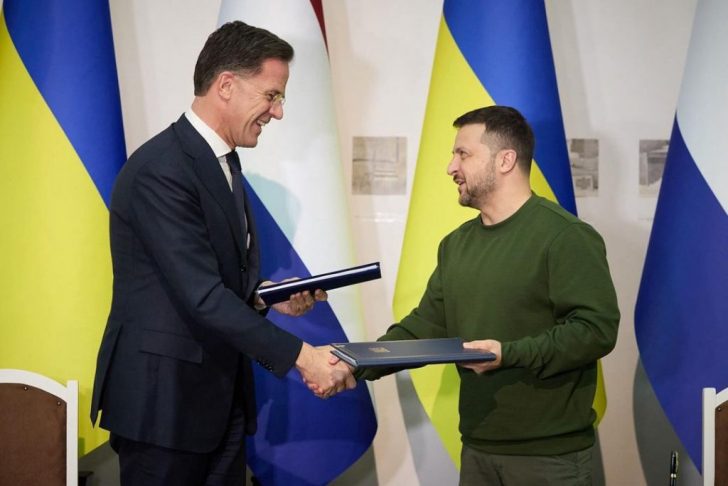
Zelenskyy / IG / The Pope’s wordings “the courage of the white flag” stir controversy. Many believed that the pope meant that Kyiv should surrender to Moscow and end the war.
This nuanced approach has led to a varied spectrum of reactions, from appreciation of his efforts to foster peace to criticism for seemingly legitimizing Russia’s actions.
The Pope’s call for courage in negotiation was meant to highlight the strength it takes to come to the table, especially when the odds are daunting. “Negotiations are never a surrender,” he stated, pushing back against the simplistic equation of dialogue with defeat. This message, however, was met with skepticism by some, who saw it as an oversimplification of a complex and deeply entrenched conflict.
The Response From Ukraine and the Global Community
Ukraine’s stance, as articulated by President Volodymyr Zelenskyy, remains unwavering: negotiations can only occur when Ukraine’s sovereignty and territorial integrity are recognized, reflecting the deep wounds and steadfast resolve of a nation under siege.
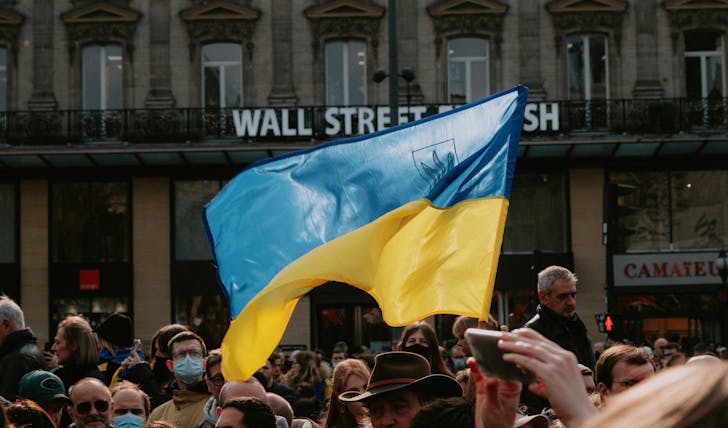
Matt / Pexels / The head of the Catholic Church has always been a supporter of peace between Russia and Ukraine.
This position underscores the challenging reality of initiating peace talks, with Ukraine demanding respect for its status as the invaded party.
The global reaction to Pope Francis’s comments has been a microcosm of the broader international divide over the conflict. While some of Ukraine’s allies have cautiously entertained the idea of negotiations, others have ramped up military support, signaling a complex web of diplomatic, strategic, and ethical considerations at play.
As the Vatican navigates the fallout from the Pope’s comments, the controversy underscores the diverse perspectives on what constitutes bravery in the face of aggression. For some, courage is found on the battlefield, defending one’s homeland at all costs, and for others, like Pope Francis, bravery lies in the willingness to extend the olive branch and seek peace amidst the cacophony of war.
More in News
-
`
NASA Brings Starliner Spacecraft Back to Earth Without Crew
In a significant development for the space industry, NASA has announced its decision to bring Boeing’s Starliner spacecraft back to Earth...
September 5, 2024 -
`
Clare Cavanagh’s Top 10 Funniest Moments on the Internet
When it comes to online humor, Clare Cavanagh is someone who knows her way around a good laugh. As a comedian...
August 29, 2024 -
`
House and Senate Unite to Boost Maternal Health Options Across Massachusetts
The Massachusetts Legislature is taking significant steps to improve maternal health care across the state, with both the House and Senate...
August 24, 2024 -
`
How to Fix a Broken Tooth? Essential Procedures and Care
Breaking or chipping a tooth can be alarming, but it’s often manageable with prompt dental care. If a tooth is chipped,...
August 9, 2024 -
`
Enjoy a Day of Fun at the Shark Petting Zoo in Florida
A visit to the shark petting zoo in Florida is an experience that combines excitement, education, and unforgettable memories. This unique...
August 1, 2024 -
`
Is Melania Divorcing Trump if He Secures a Second Term?
As Donald Trump campaigns for a potential second term, Melania Trump’s conspicuous absence from his side has sparked speculation. With Trump’s...
July 25, 2024 -
`
The Complete Relationship Timeline of Sam Rockwell and Leslie Ribb
When it comes to Hollywood couples, few are as enduring and beloved as Sam Rockwell and Leslie Bibb. Their relationship, which...
July 15, 2024 -
`
5 Handy Ways of Getting Blood Out of Sheets
Waking up to a blood stain on your bedding is an unpleasant surprise. Figuring out how to get blood out of...
July 10, 2024 -
`
Will Ferrell’s Funniest Moments – The Best Quotes and Scenes
Will Ferrell, known for his outrageous humor and unforgettable characters, has delivered countless lines that have become ingrained in popular culture....
July 6, 2024

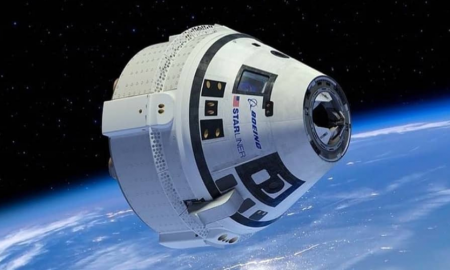



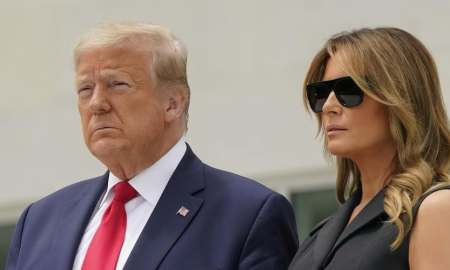
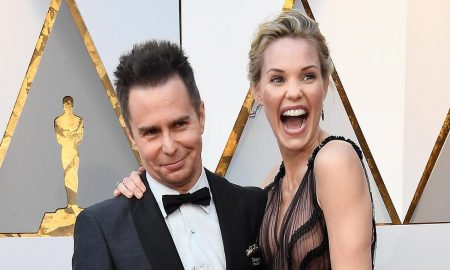

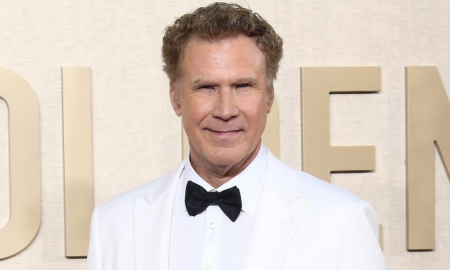


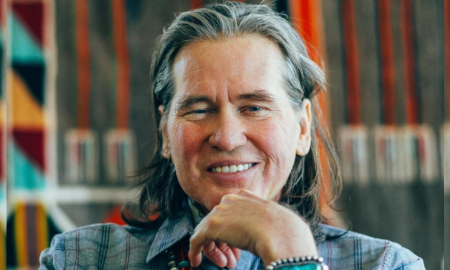


You must be logged in to post a comment Login